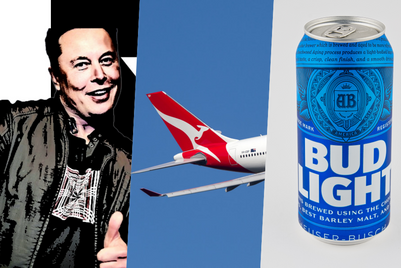Yesterday, Airbnb revealed its Chinese brand name—a three-character moniker 爱彼迎 (ài bǐ yíng). Individually, the three characters mean 'love', 'mutual' and 'welcome'—arguably on-brand if you consider them in isolation. However, public response to the new moniker has been mixed and in some cases quite critical.
The Chinese name took a year of brewing by the brand and its naming agency Labbrand, and according to the official explanation by Airbnb, denotes "let love meet each other" because "more and more Chinese travellers are getting to know interesting people through Airbnb around the world".
The name represents "the value and mission of our brand, with the love of the world's tens of millions of neighborhood communities converging in the different corners of the earth".
While an important step in localisation for Chinese consumers and for establishing a clear differentiation from domestic competitors such as Tujia, the brand’s love-laden Chinese name may prove to be a liability.
The name has gotten more than just chuckles from Chinese netizens on the brand's Weibo account, where comments said it is "ugly-sounding", "sounds like a 'filthy love hotel'" and that the brand "might as well stick to having no Chinese name".

Contacted by Campaign Asia-Pacific, Labbrand said it provided creative, design, linguistic-check, and market-research services for Airbnb, but was unable to elaborate further on the process of picking the name without Airbnb's approval.
Jerry Clode, head of digital and social insight at Resonance, shared a list of four issues he sees with the name.
First, it does not roll off the tongue, which is an essential part of making a Chinese name easy to say and remember. The name combines characters that would not normally go together, creating a "clunky" feeling in terms of pronunciation, and also when typing into a mobile interface, Clode said.
"Airbnb has fallen into the pitfall of Bing's Chinese name "必应 bì yìng" containing two consecutive pronunciations that are too similar, making it difficult to distinguish," said a Weibo commenter 'Christine'.

For a brand that has succeeded in China due to the power of word-of-mouth, this creates an "instant circuit-breaker in terms of sharing", Clode said. "It is simply awkward to include it in a real, social conversation."
Second, Clode said, the name doesn't make a good first impression. "Just like Eminem, you only get 'one chance' with your Chinese name," he said. "It must, from the outset, convey a clear and unambiguous meaning. It is like the trailer of a movie; if it does not make sense the audience will switch off."
While the idea behind the name is strategically informed, the three characters are not able to communicate a takeaway message, he said. "For example, the second character, 彼 bǐ, is usually expressed alongside another character to form the extended meaning of “mutual, for each other” (彼此 bǐcǐ). Without the second character, consumers are forced into a form of a guessing game."
Setting the name up as a puzzle simply gives local Chinese consumers "unwanted homework" which they may not be bothered devoting time to in their busy schedules.
Third, Clode advises that brands beware of the 'bi' sound. The Chinese internet has a colourful, rapidly evolving, and filthy vernacular of its own, he said. The 'bi' sound, the second sound in Airbnb’s new Chinese name, is often used to mean the equivalent of what English speakers call "the C word". It's part of popular slang phrases such as "as cool as a cow’s ****” and “stupid ****”.
"Sitting precariously in the middle of the new name, this sound sits as a ‘loaded gun’ for China’s netizens to have some fun at the expense of Airbnb," Clode said.
Finally, the first character "爱 ài" is a widely used word expressing the idea of love. "Nothing wrong for a brand to be associated with love, but the issue is too many brands use it for exactly this reason," added Clode.
The character, for example, features regularly in the copywriting of other industries and product categories, such as infant nutrition.
"There is too much 'love' in Chinese marketing; it seems difficult for Airbnb to own this emotion for themselves in a differentiated way," said Clode.



.jpg&h=334&w=500&q=100&v=20250320&c=1)


.png&h=334&w=500&q=100&v=20250320&c=1)


.jpg&h=334&w=500&q=100&v=20250320&c=1)
.jpg&h=334&w=500&q=100&v=20250320&c=1)









.jpg&h=268&w=401&q=100&v=20250320&c=1)